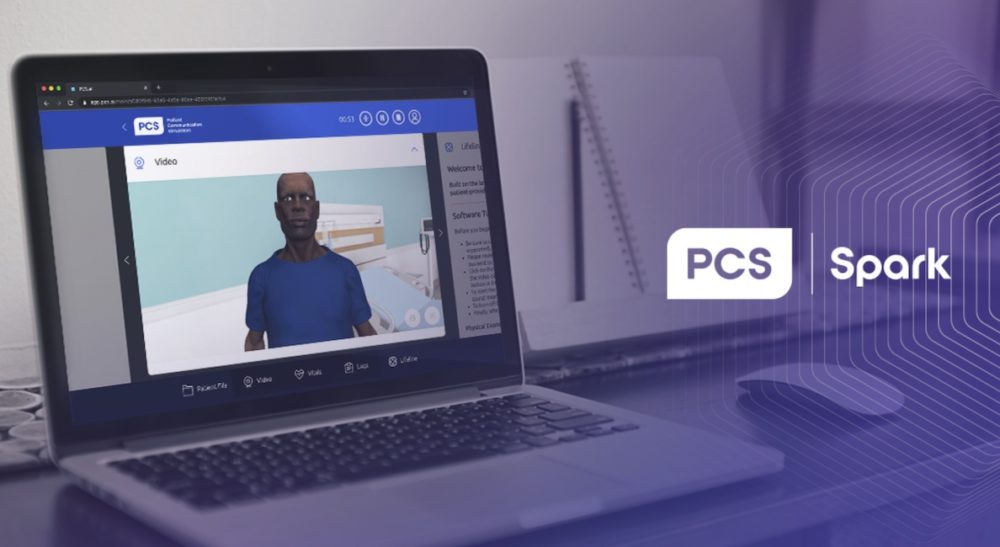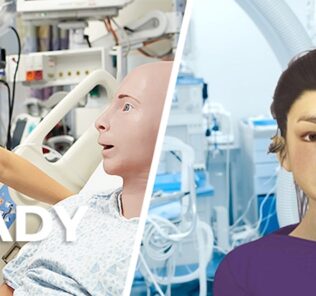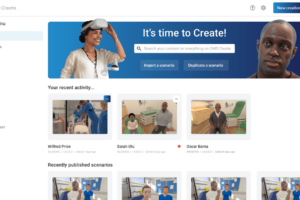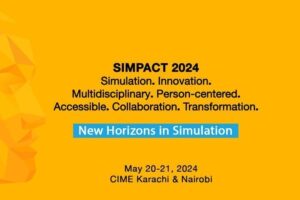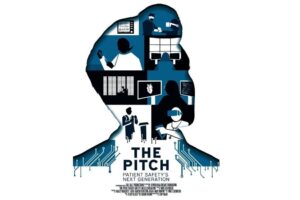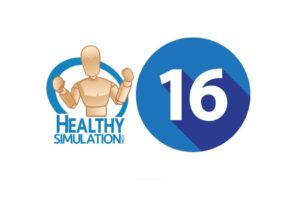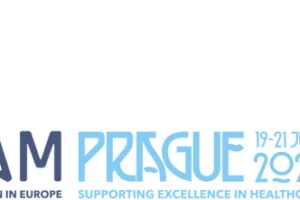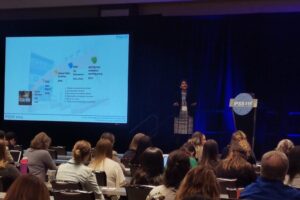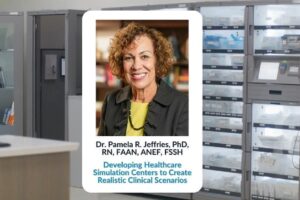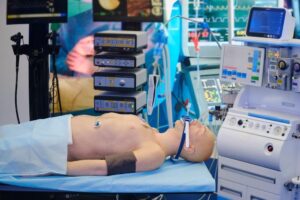PCS Spark adds Spanish, French and German Language Capabilities
PCS was founded in 2015 with the idea of bringing communication training to the world of healthcare simulation. PCS after all stands for Patient Communication Simulator. ALEX was the first incarnation of the communication simulator concept, bringing with it a first-of-its-kind AI brain that could understand thousands of basic questions and respond back with a response tailored to the presented scenario. PCS Spark followed the launch of ALEX bringing communication training to virtual reality and screen-based devices. The communication engine had also evolved becoming more robust and able to understand more complicated questions and statements.
Today, the PCS communication engine has thousands of users interacting with it on a regular basis which in turn trains the AI to become smarter every day. With over 50,000 different core questions and countless variations PCS Spark and ALEX can understand, it is a far cry from the initial introduction of the PCS Conversation Engine.
However, while the PCS Communication Engine has grown by leaps and bounds since its introduction, it still has only supported English as the language to communicate with virtual patients (or manikin). “With a little under 5% of the world’s population speaking English, we’ve really only begun to scratch the surface of who is able to use Spark or ALEX for communication training,” said Nick Stoick, VP of Sales for PCS.
Sponsored Content:
“I’ve been speaking with end-users of PCS Spark since the beginning and one of the most common questions and requests that I’ve received is ‘Does it support languages other than English?’ In the past I’d always have to answer with, ‘Only English is supported at this time,’ but today I can finally say the PCS platform has acquired the capability to understand and speak not only its ‘native’ English, but also French, Spanish, and German. This makes Spark the one and only multilingual virtual patient driven by a conversational Artificial Intelligence,” he said.
In our globalized world, more and more healthcare professionals face non-English speaking patients. Whether that is in English-speaking countries with refugees, tourists, or migrant workers showing up in local hospitals and clinics or non-English speaking countries entirely, communication training is key to effective healthcare training and patient care regardless of language proficiency.
While PCS is thrilled to be able to bring healthcare communication training to additional languages, it wasn’t always something they thought would be possible. The PCS engineering team developed an extremely innovative solution for ensuring that PCS Spark patients understand these newly gained foreign languages as well as their ever-improving AI understands English.
As it is widely recognized, the quality of any AI-enabled solution greatly depends on the increasing size of the data set it is built upon. Every virtual patient session improves the natural language processing capabilities of the Spark AI.
Sponsored Content:
Creating new AI data sets for each newly supported language would have required each language model to slowly build up its clinical interviewing capabilities as they are used more and more instead of building on the well-established English language models. This was not good enough for PCS. Rather, they decided to integrate real-time AI translation into their AI models.
This way, when a student asks a question in Spanish, Spark translates that to English, then uses the large-scale experience of its English language models to pick the right answer, which is then translated back to the language the student used and verbalized – in this case – in Spanish. All this in a fraction of a second, enabling the student to maintain a conversation with a Spark patient in French, Spanish or German. Although machine translations are not always flawless, they have been found to be good enough for the English-language AI to understand what the learners are asking about.
This approach also means that the snowball effect of PCS Spark getting better with every simulation session is further accelerated as now interviews in any of the supported languages benefit future sessions in any other languages as well. While a lot of this might sound theoretical, it’s actually been put into practice with French-speaking learners since early 2022 with thousands of learners all across Quebec speaking to Spark virtual patients in French.
PCS is excited to bring this additional language support to speakers of French, Spanish, and German. If you’re interested in adding communication training to your simulation program in these additional languages, PCS is hosting demos of this new functionality which you can sign up for here.
More About PCS
For some companies, healthcare simulation is not just a market, but a calling that cannot be escaped. This is true for PCS – a company that started in 2015 and has helped revolutionize patient safety. PCS’s AI-driven patient simulation technology includes virtual patients, wearable simulation, and smart manikins. The company developed the first patient simulator with a fully integrated cloud-based AV recording and debriefing system, enabling clinical simulation centers to digitally debrief sessions with ease. PCS has also role-played distressed teenager patients to be able to build on a hands-on experience of healthcare simulation.
PCS’s story began back in the 1990s when the founders engaged on a journey around patient healthcare simulation and standardized patient methodologies. The team has since worked with some of the most innovative experts in healthcare simulation as they developed disruptive products.
Overall, the PCS.ai platform is the most advanced cloud-based simulation platform. Users can manage all PCS scenarios and medical simulations through an intuitive, easy-to-use web interface. They can author new patient scenarios, automatically assess learning objectives, and enable learner-driven simulation for their learners as well. The PCS Communication engine leverages the latest advances in machine learning and artificial intelligence to constantly improve. Best-in-class speech recognition and speech synthesis combined with custom natural language processing neural networks.
Learn More About PCS Spark
Lance Baily, BA, EMT-B, is the Founder & CEO of HealthySimulation.com, which he started while serving as the Director of the Nevada System of Higher Education’s Clinical Simulation Center of Las Vegas back in 2010. Lance is also the Founder and acting Advisor to the Board of SimGHOSTS.org, the world’s only non-profit organization dedicated to supporting professionals operating healthcare simulation technologies. His co-edited Book: “Comprehensive Healthcare Simulation: Operations, Technology, and Innovative Practice” is cited as a key source for professional certification in the industry. Lance’s background also includes serving as a Simulation Technology Specialist for the LA Community College District, EMS fire fighting, Hollywood movie production, rescue diving, and global travel. He and his wife Abigail Baily, PhD live in Las Vegas, Nevada with their two amazing daughters.
Sponsored Content:



